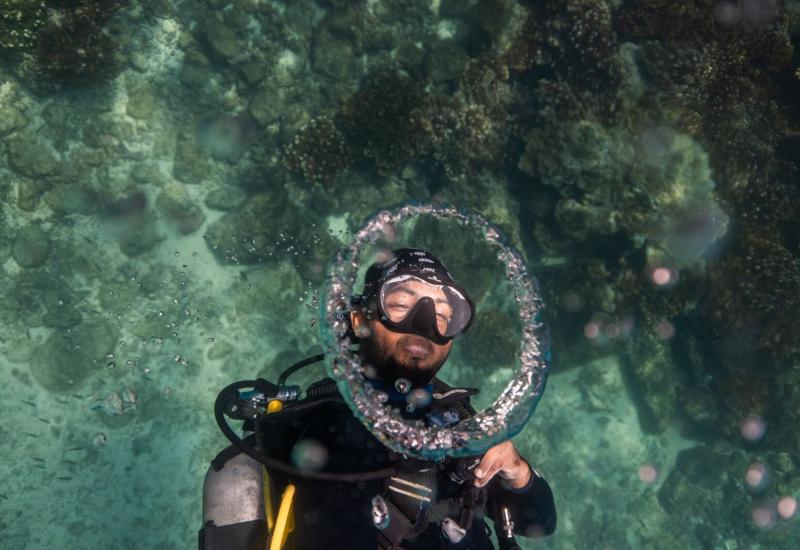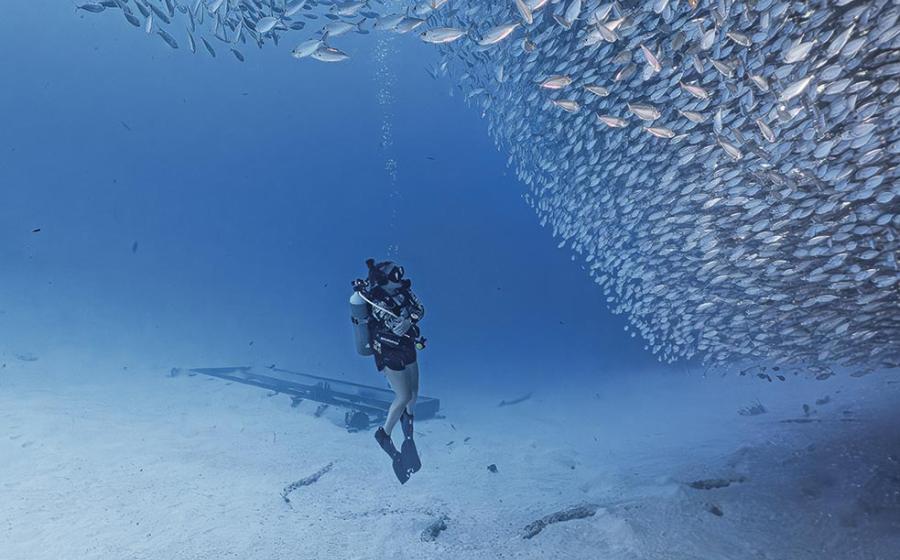ASK DAN: How Do I Overcome Seasickness?

Courtesy of DANUnmanaged seasickness will make any boat trip miserable.
Some of the world’s best dive sites are only accessible by boat, but unfortunately, seasickness prevents some divers from visiting them.
Unmanaged seasickness will make any boat trip miserable. Though there isn’t a cure for this malady, there are ways to prevent and manage it.
Motion sickness develops when the brain receives conflicting signals from different sensory organs. When a person on a boat can feel the boat moving up and down in their muscles and joints, their inner ears tell them to balance according to this perceived motion. When their eyes perceive surroundings that appear to be stationary, however, the person may experience dizziness, nausea and vomiting.
PREVENTION
Preventing seasickness is easier than treating it. Dehydration due to vomiting can be a real problem for divers who are prone to motion sickness, so take preventive measures before you feel unwell.
- Do Your Homework Choose to ride on the largest boat possible (opt for a catamaran if available). In general, the wider the beam, the more stable the boat will be. Choose dive sites relatively close to shore to minimize time on the boat.
- The Day Before Avoid drinking alcohol or eating heavy meals. Consider taking antiemetic medication such as Bonine or Dramamine. Check the medication’s guidelines to see how long you’ll have to wait for it to take effect and how long it lasts. Don’t dive under the influence of any medication that you’re using for the first time.
- Gear Up Right AwayAssemble your dive gear on the dock or before the boat gets underway. This will prevent you from having to look down while moving through swells.
- Watch the Horizon When possible, stare at an unmoving object in the distance, such as the horizon. Avoid reading, writing or using a mobile device.
- Find a Stable Spot Position yourself near the center of the boat, avoiding upper or lower decks where bobbing and swaying will be more pronounced.
- Avoid Odors Find a well-ventilated area. Stay away from strong smells such as cigarette smoke and engine exhaust.
- Eat a Little, Stay Hydrated Opt for easily digestible snacks such as dry crackers or bread throughout the day. Keep in mind that an empty stomach is more susceptible to irritation. Stay hydrated with water or sports drinks; avoid carbonated drinks and caffeine.
OVER-THE-COUNTER MEDICATIONS
Anti-nausea medications such as Bonine (meclizine) and Dramamine (dimenhydrinate) work by suppressing nerve pathways between the control center in the brain that induces vomiting and other control centers. Drowsiness is a common side effect of these medications, so experiment with them to test your susceptibility to drowsiness before using one of these medications while diving.
THE PATCH
Some divers acquire a prescription for the scopolamine patch, which releases the drug slowly through the skin. Because scopolamine affects the central nervous system, its side effects can impair your ability to dive safely. Scopolamine is prescription medication, so discuss its use and possible side effects with your doctor.
NATURAL REMEDIES
- Ginger For some people, consuming ginger tea, ginger candy or ginger ale may help relieve nausea.
- Dive In If you start to feel ill, ask if you can be one of the first to enter the water. Once in the water, the body no longer receives conflicting signals from the eyes and limbs, which can alleviate nausea. If you become ill underwater, keep your regulator in your mouth and vomit through it. Most regulators can process vomit without issue, but keep your spare second stage handy just in case.
- Acupressure Bands Based on knowledge from traditional Chinese medicine, applying pressure to a point on the wrist known as “P-6” can suppress nausea caused by motion sickness. The Relief-band sends out a small electrical pulse; other bands simply apply pressure.
Before using any medication or natural remedy in a diving setting, know how it affects you. On a day when you won’t need to drive or operate heavy machinery, take one dose and assess your condition. If you are unimpaired and pleased with the results, try that method of seasickness prevention on your next boat dive.
For more information, visit dan.org










